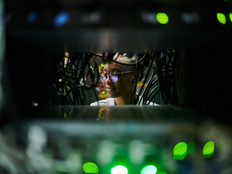Back to the Labs for 'City of the Future'
Two things have made Harrisonburg, Va., an ideal place for federal government agencies and their contractors to relocate: It’s 120 miles from Washington — well beyond the theoretical nuclear blast zone of 50 miles — and Harrisonburg officials plan to deploy wireless IPv6, the next-generation Internet standard, citywide. However, the city has run into several challenges deploying the IPv6 network.
Although Harrisonburg successfully conducted a test of IPv6 at James Madison University in May, completion of its IPv6 wireless network is at least 18 months off. After awarding a franchise agreement to Internet service provider World Airwaves of Winchester, Va., to create what would have been the first citywide IPv6 network in the country, Harrisonburg parted ways with World Airwaves in June and is now looking for a new partner.
“We’re in kind of a second iteration,” says Jim Barnes, the assistant economic development director for technology for the city of Harrisonburg and a professor of integrated science and technology at James Madison. “[World Airwaves] cannot fulfill the requirements within the deadline.”
Announced in February 2006 as an open network that would allow multiple, competing ISPs to offer their services to consumers and businesses, the wireless network was expected to be operating citywide by the third quarter of 2007. Network service providers are to pick up the entire tab, says Barnes.
The IPv6 network is important to Harrisonburg’s efforts to court technology businesses. “We knew that to attract tech firms to Harrisonburg, we had to have a system compatible with Feds and [the Department of Defense],” says Barnes. The federal government has mandated that civilian agencies and DoD be IPv6 compliant by 2008. As it stands, the city will squeak in just under the deadline.
What Went Wrong
World Airwaves’ goal was to show how well IPv6 worked with Wi-Fi, particularly when it came to multicasting. Multicasting, one of the communication techniques used by IPv6, is the ability for one sender to send out to multiple receivers. Harrisonburg plans to use multicasting primarily for municipal operations — for example, to allow first responders to send live video images from a crash site or for the city to broadcast emergency messages to residents.
But World Airwaves president Mark Bayliss says the company first noticed problems in early 2006 and tried to develop some work-around solutions. “In the lab, everything worked pretty well,” says Bayliss. But when the ISP moved the experiment to Harrisonburg’s airwaves, the Wi-Fi network came to a screeching halt. The problem is that wireless access points that use the 802.11b and 802.11g protocols transmit multicast at the lowest available data rate, according to Bayliss. “Often less than a megabit per second worth of multicast can saturate the entire wireless channel,” he says. “This means that IPv6 over IEEE 802.11 is less reliable than IPv4, because IPv6 relies on multicast so heavily.” In fact, although IPv6 is being designed to work with existing IPv4 networks, users have long been discussing the potential difficulties of multicasting over Wi-Fi.
But multicasting IPv6 across Wi-Fi is possible, says Sean Siler, Microsoft’s IPv6 program manager. “I do know that several customers are using the IPv6 multicasting capabilities of Windows Vista in conjunction with their Wi-Fi networks quite successfully,” says Siler, adding that he is unaware of the details of the Harrisonburg project.
Still, when Harrisonburg does deploy IPv6 it will likely do so using the WiMAX standards. WiMAX 802.16 technology, which has a range of about 30 miles, is expected to enable multimedia applications with wireless connections to work with IPv6. “We are looking at IPv6 and WiMAX,” says Harrisonburg’s Barnes. The city expects to announce a new franchisee in September, he says.
Fertile Ground
Sandwiched between Virginia’s capital, Richmond, and Washington, Harrisonburg sits atop miles of unused fiber optic cable left over from the dot.com frenzy of the 1990s. The city’s focus on technology has not gone unnoticed. Criticon Corp., of Alexandria, Va., announced plans to create a $115 million data storage and continuity-of-operations facility in Harrisonburg. And last year, Reston, Va.,-based SI International, which has facilities in Harrisonburg, signed a $138 million contract with the U.S. Patent and Trademark Office to provide pre-grant publication classification services.






